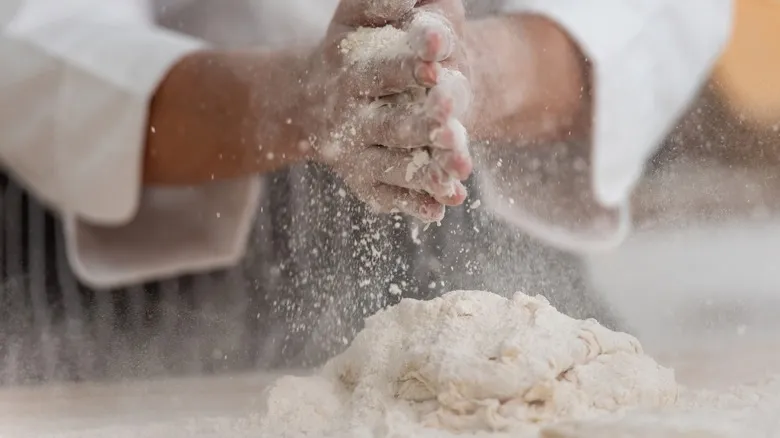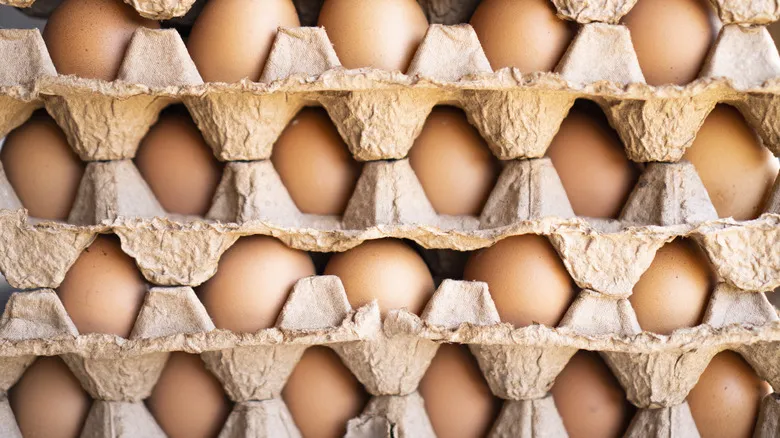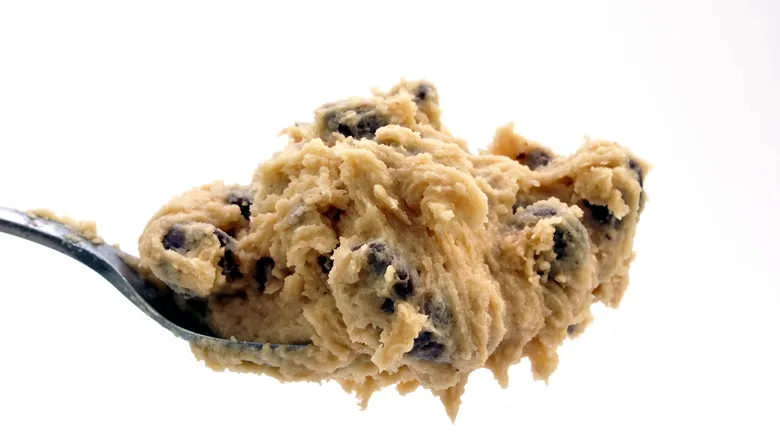Swap out the flour with a wheat-free alternative

One of the main reasons why consuming cookie dough is discouraged is due to the presence of raw flour. Raw flour poses a significant risk of foodborne illness, as numerous outbreaks of salmonella and Escherichia coli (E. coli) in recent years have been associated with it, according to the Food and Drug Administration (FDA). The harmful bacteria found in raw flour can originate from the grain itself or may be introduced during the milling process. Even after the grains are ground, bleached, and processed, these bacteria are often not eliminated. Therefore, any cookie dough recipe that includes uncooked, wheat-based flour should be avoided.
A safe alternative to traditional flour in edible cookie dough is to use almond or coconut flour. Unlike wheat flour, these options undergo treatment to eliminate harmful bacteria. For instance, coconuts used for coconut flour are processed and dried before being heated to 170°F. Additionally, almonds must be heat-pasteurized by law before they can be processed into flour. This means that cookie dough made with cottage cheese can still include flour, provided it is not wheat-based.
Out with eggs, in with cottage cheese

The second reason traditional, raw cookie dough is generally unsafe to consume is because of the presence of raw eggs. Pasteurized eggs are relatively safe since the heat treatment likely eliminates any risk of salmonella. However, fresh eggs from your own hens can still harbor this bacteria. According to information from the University of Minnesota Extension, approximately one in every 20,000 eggs may contain salmonella, which can cause symptoms like diarrhea, vomiting, cramps, and in severe cases, even death.
Many recipes for edible cookie dough replace eggs with cottage cheese. In conventional cookie recipes, eggs contribute moisture, leavening, richness, and spread. Since this cookie dough isn’t baked, you won’t lose anything by omitting the eggs. Cottage cheese adds a creamy texture and helps bind the dough, creating a familiar cookie dough consistency. Additionally, it offers protein similar to that of eggs and doesn’t require any cooking or heating.
So, if you find yourself craving cookie dough late at night but want to avoid the risk of foodborne illness, try one of the popular cottage cheese edible cookie dough recipes circulating online and enjoy it without worry.
Recommended

Marcus Samuelsson Swears By A Simple Pan Swap For Cornbread

3 Secret Ingredients That Make Key Lime Pie Taste Even Better

How To Make The Best Baked Tofu At Home

Upgrade Any Fall Dessert With Bourbon-Infused Whipped Cream
Next up

